Seven Principles
The 7 Principles of Leave No Trace: Winter Recreation


The 7 Principles of Leave No Trace are a framework for making good decisions outdoors. Check out our Ethics Reference Cards – we have 17 versions that adapt The 7 Principles to fit specific outdoor areas, activities or age groups!
1. Plan Ahead and Prepare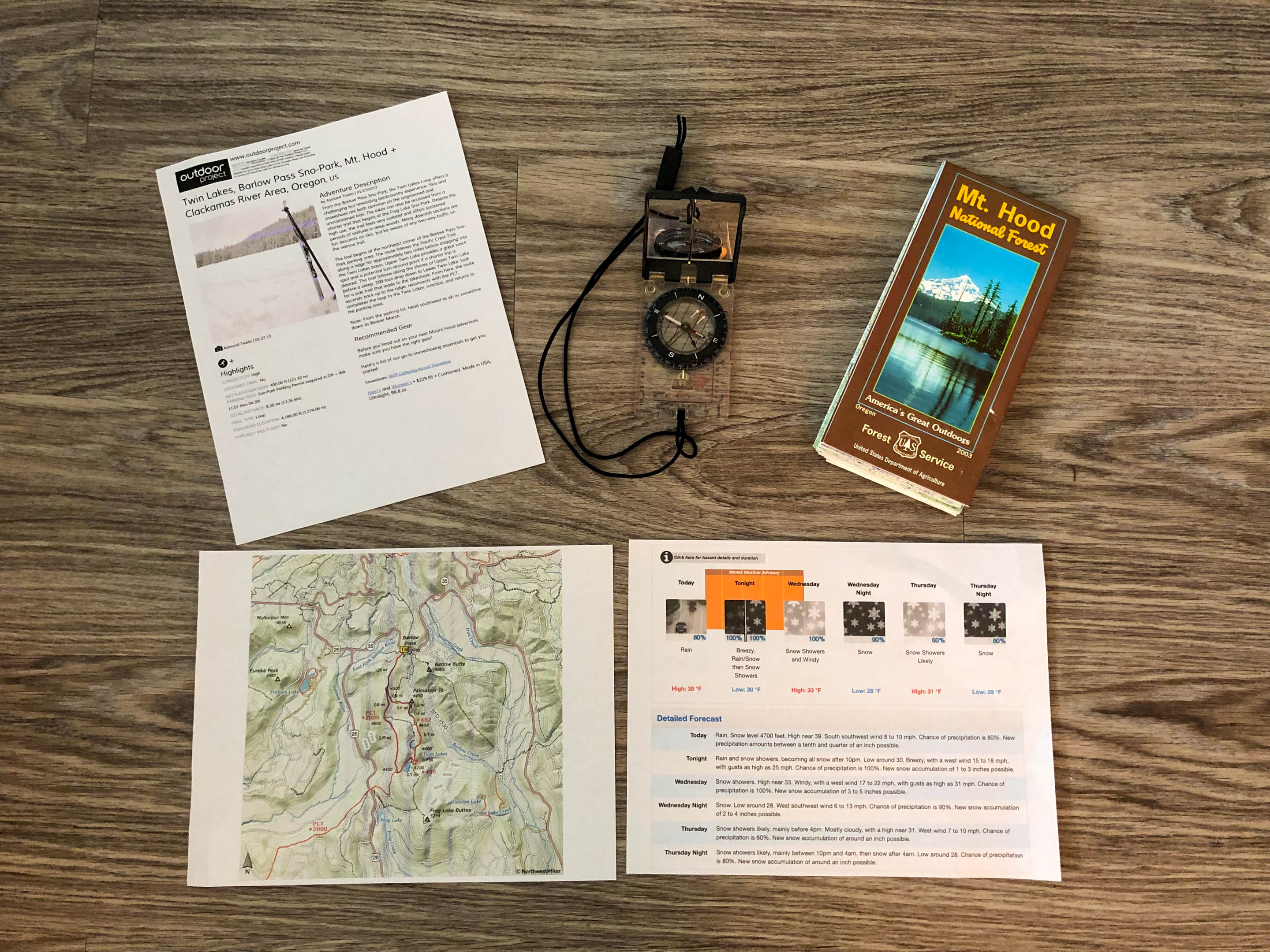 Know the area and what to expect- check avalanche and weather reports prior to departure, consult maps and local authorities about high danger areas, safety information, and regulations. Monitor snow conditions frequently and prepare for extreme weather, hazards and emergencies. Carry and learn how to use an avalanche beacon, probe and shovel, and leave your itinerary with family or friends before heading out. Use a map and compass to eliminate the need for tree markings, rock cairns or flagging.
Know the area and what to expect- check avalanche and weather reports prior to departure, consult maps and local authorities about high danger areas, safety information, and regulations. Monitor snow conditions frequently and prepare for extreme weather, hazards and emergencies. Carry and learn how to use an avalanche beacon, probe and shovel, and leave your itinerary with family or friends before heading out. Use a map and compass to eliminate the need for tree markings, rock cairns or flagging.
2. Travel and Camp on Durable Surfaces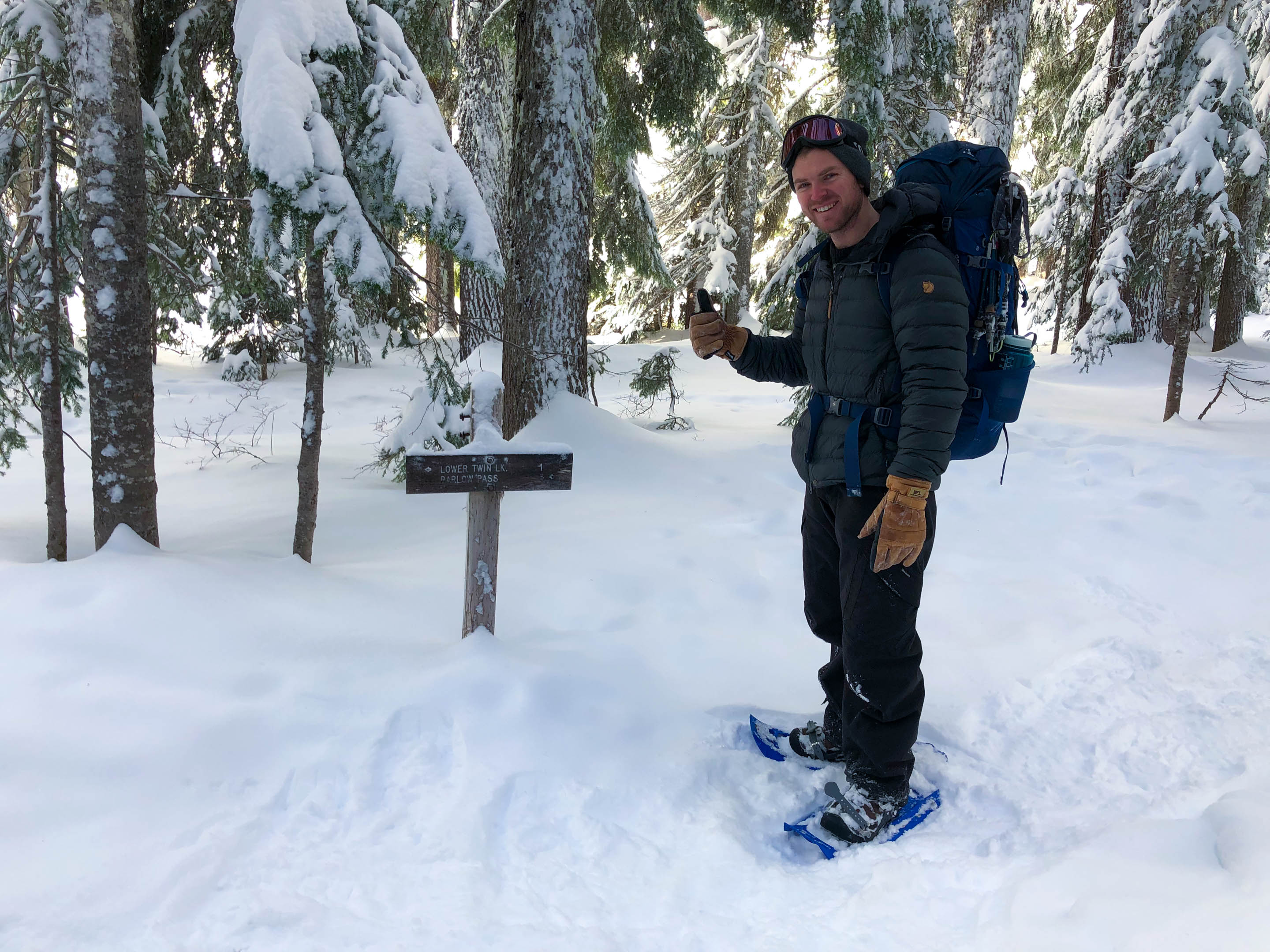 Stick to trails and stay on deep snow cover whenever possible. In muddy spring conditions stay on snow or walk in the middle of the trail to avoid creating new trails and damaging trailside plants. Travel and camp away from avalanche paths, cornices, steep slopes and unstable snow. Choose a camp site on a durable surface- snow, rock, or mineral soil- not tundra or other fragile vegetation and 200 feet from lakes and streams. Too much snow to tell if you are near a water source? Consult your map!
Stick to trails and stay on deep snow cover whenever possible. In muddy spring conditions stay on snow or walk in the middle of the trail to avoid creating new trails and damaging trailside plants. Travel and camp away from avalanche paths, cornices, steep slopes and unstable snow. Choose a camp site on a durable surface- snow, rock, or mineral soil- not tundra or other fragile vegetation and 200 feet from lakes and streams. Too much snow to tell if you are near a water source? Consult your map!
3. Dispose of Waste Properly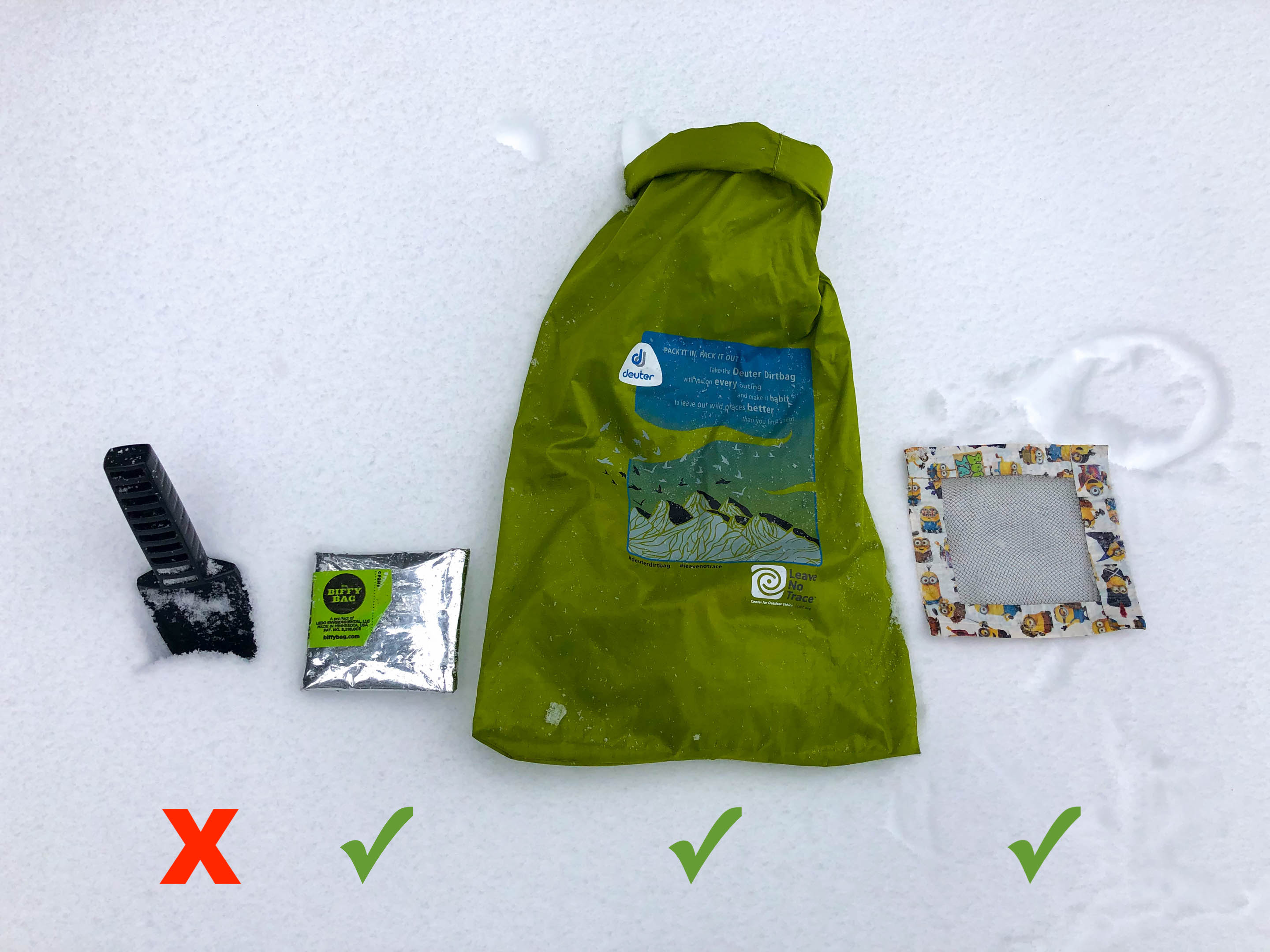 Pack it in, pack it out! Pack out all trash- yours and others, including food scraps, wax shavings, and pieces of litter. For liquid waste, go 200 feet (70 big steps) from camp, trails, and water, even if it is snow covered. Where snow is too deep, ground is frozen or where regulations don’t allow digging cat holes, be prepared to pack out solid human waste using a WAG bag.
Pack it in, pack it out! Pack out all trash- yours and others, including food scraps, wax shavings, and pieces of litter. For liquid waste, go 200 feet (70 big steps) from camp, trails, and water, even if it is snow covered. Where snow is too deep, ground is frozen or where regulations don’t allow digging cat holes, be prepared to pack out solid human waste using a WAG bag.
4. Leave What You Find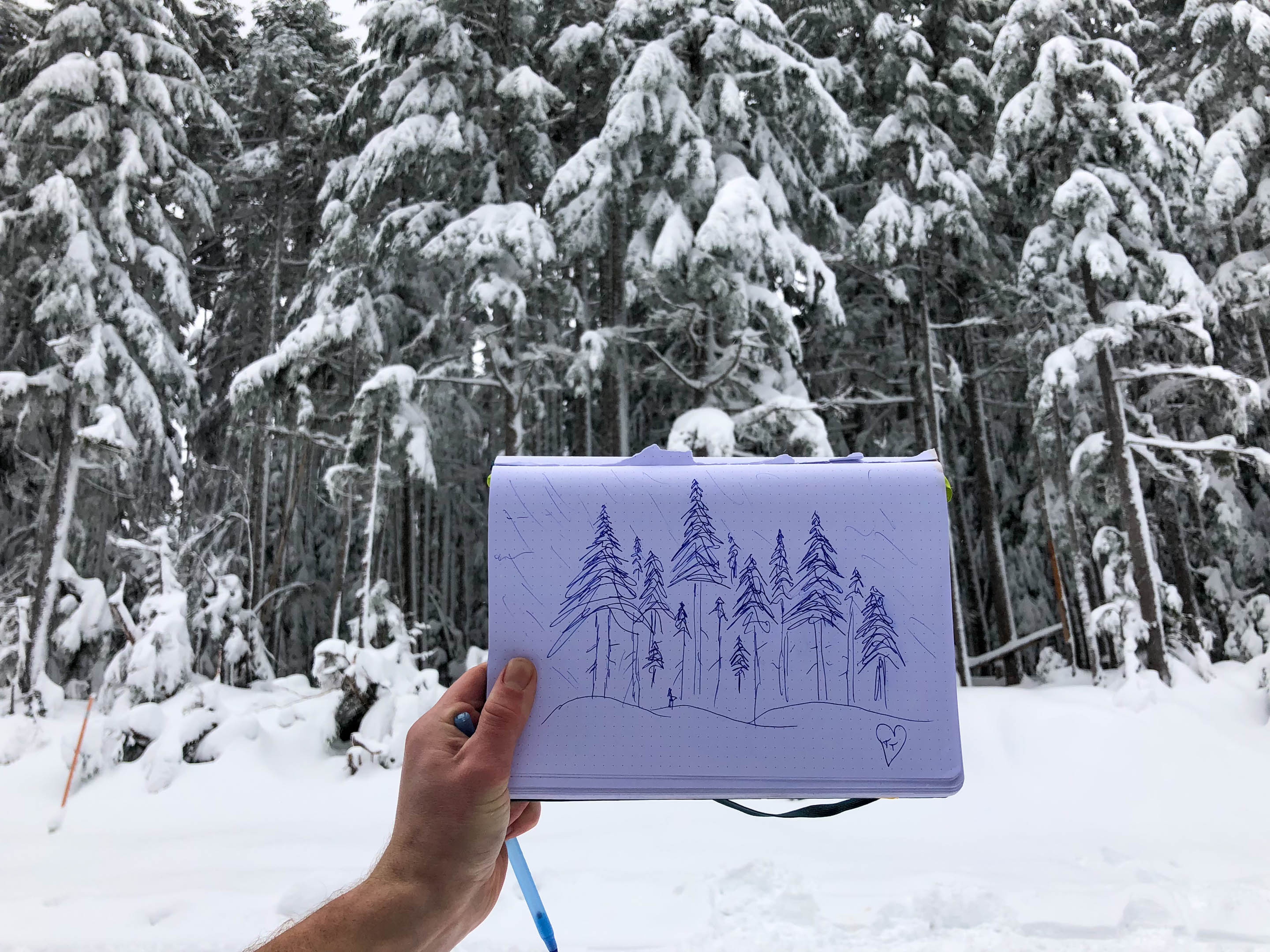 When you take rocks, plants, animals or cultural resources from an area, it alters the natural functioning of the ecosystem. Instead, take a photo, draw or paint a picture, write a song or poem, or create a dance- there are many ways we can share the wonders of the natural world with one another!
When you take rocks, plants, animals or cultural resources from an area, it alters the natural functioning of the ecosystem. Instead, take a photo, draw or paint a picture, write a song or poem, or create a dance- there are many ways we can share the wonders of the natural world with one another!
5. Minimize Campfire Impacts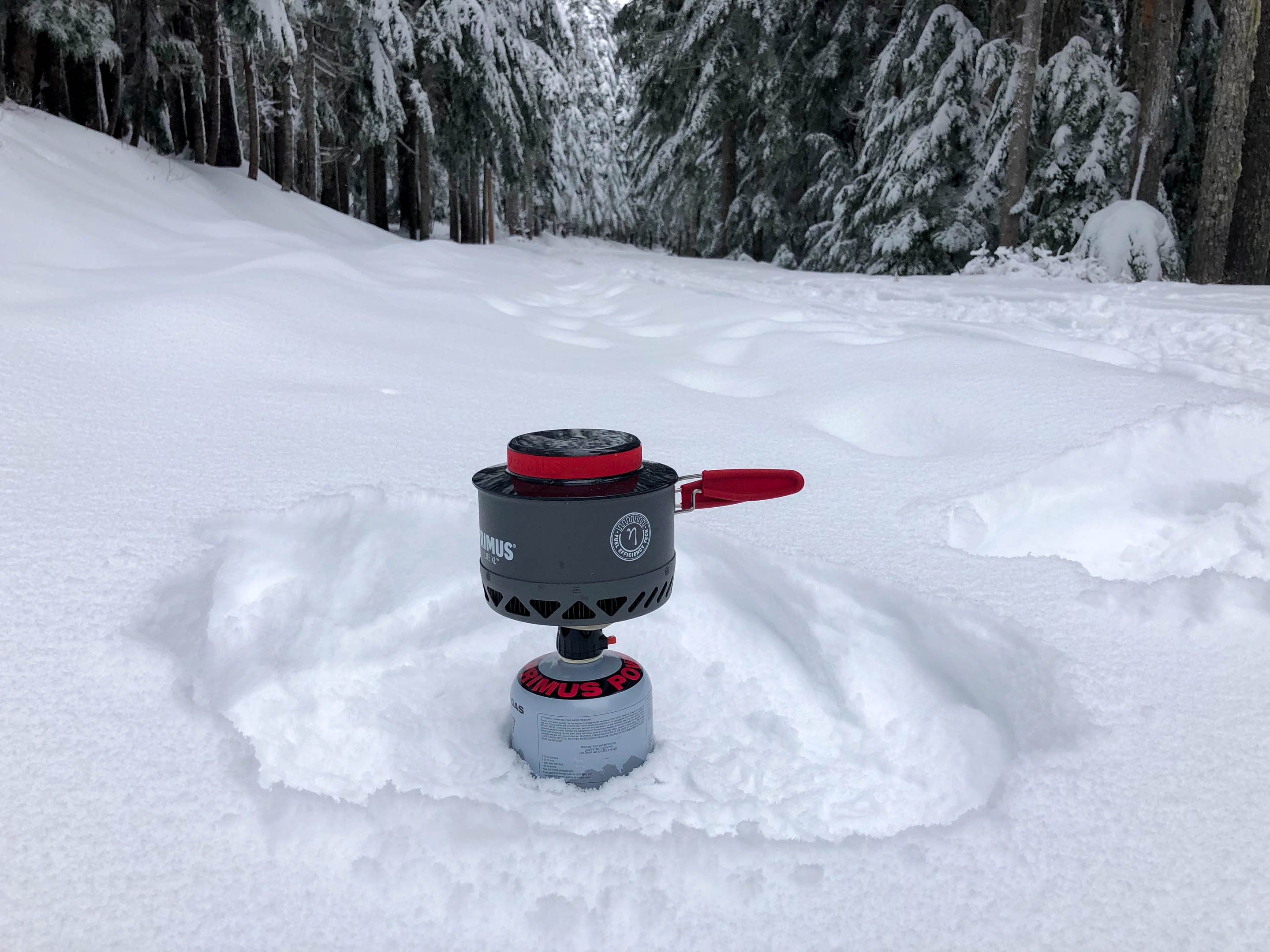 Need fire for food? Cook it on a camp stove! And enjoy a lantern or headlamp for light. Where fires are permitted, use designated fire rings. Keep fires small, burn only downed wood that is smaller than your wrist and put out campfires completely.
Need fire for food? Cook it on a camp stove! And enjoy a lantern or headlamp for light. Where fires are permitted, use designated fire rings. Keep fires small, burn only downed wood that is smaller than your wrist and put out campfires completely.
6. Respect Wildlife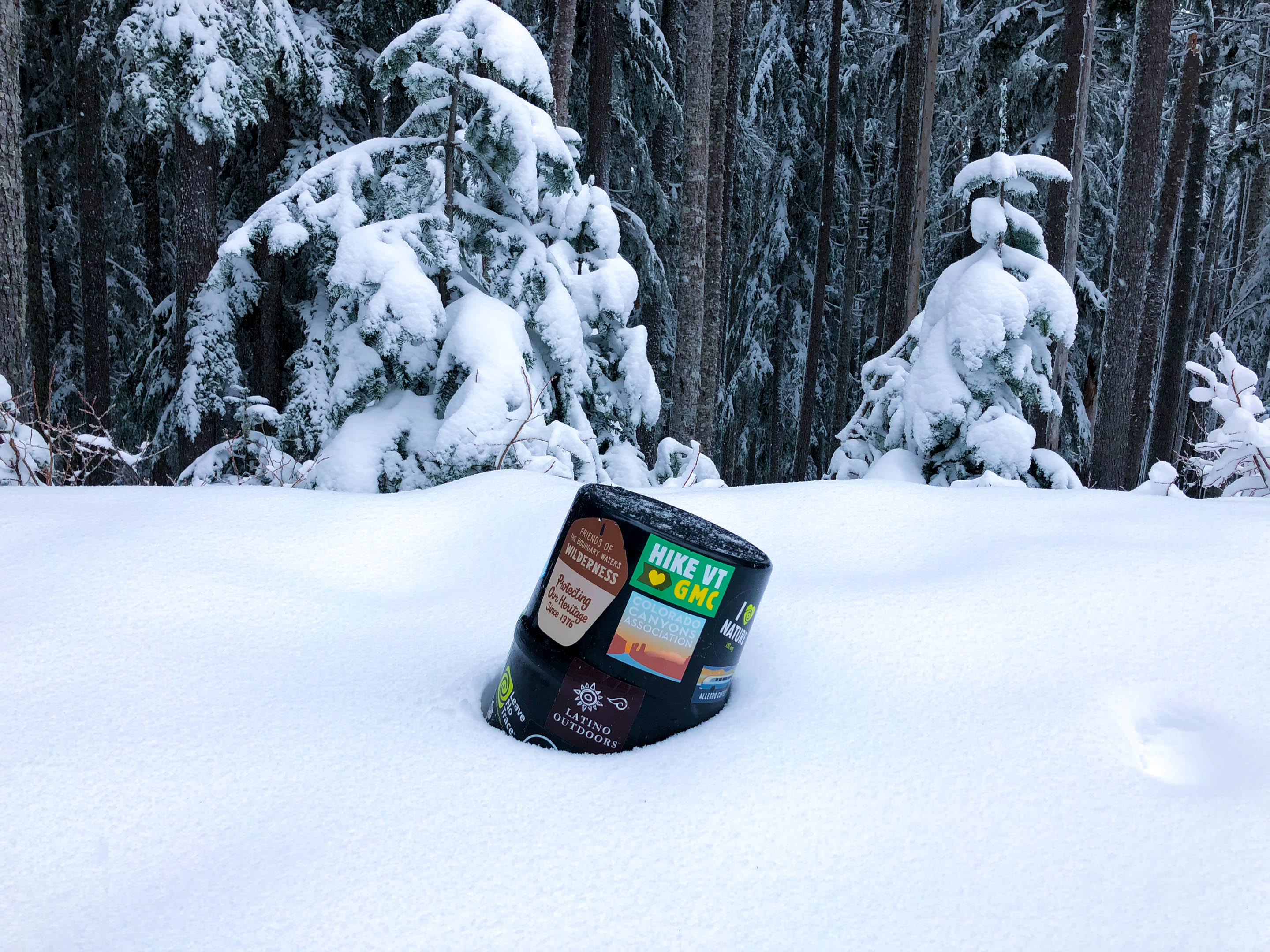 Winter is an especially vulnerable time for animals. Observe wildlife from a distance, never follow, approach or feed animals, and store food and trash securely.
Winter is an especially vulnerable time for animals. Observe wildlife from a distance, never follow, approach or feed animals, and store food and trash securely.
7. Be Considerate of Other Visitors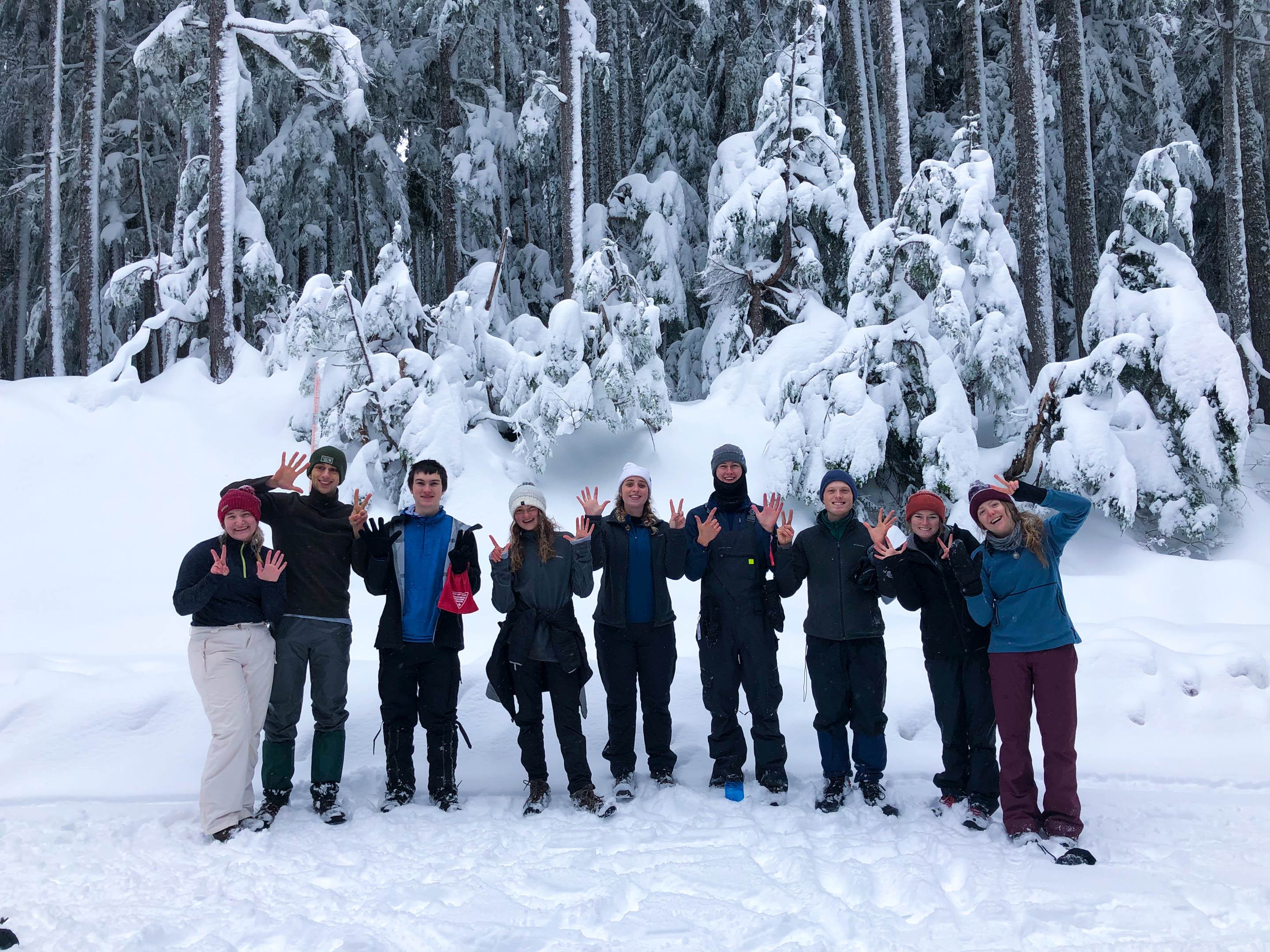 Respect other visitors and protect the quality of their experience. Keep noise to a minimum when near others, and let nature’s sounds prevail. When ascending trails, keep clear and yield to downhill traffic. Avoid booting and snowshoeing in skin or ski tracks.
Respect other visitors and protect the quality of their experience. Keep noise to a minimum when near others, and let nature’s sounds prevail. When ascending trails, keep clear and yield to downhill traffic. Avoid booting and snowshoeing in skin or ski tracks.
Click here for more Leave No Trace Ethics for Backcountry Snowsports.
Leave No Trace’s Monika Baumgart and David LeMay are part of the 2020 Subaru/Leave No Trace Traveling Trainer Program that provides free, mobile education to communities across the country. Proud partners of this program include Subaru of America, REI, Eagles Nest Outfitters, Deuter, Thule, Fjällräven and Klean Kanteen.
Let’s protect and enjoy our natural world together
Get the latest in Leave No Trace eNews in your inbox so you can stay informed and involved.
